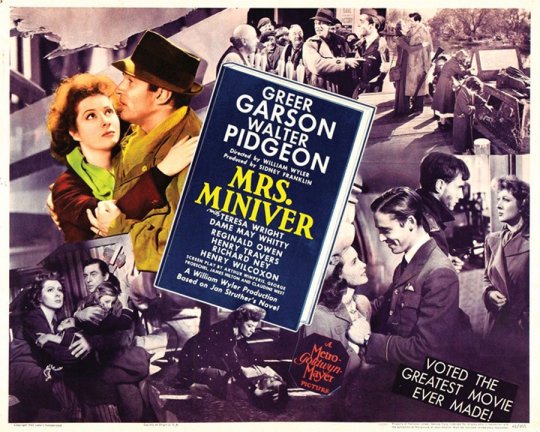#mrs miniver
Text
Oscar Nominee of All Time: Round 1, Group A
(info about nominees under the poll)

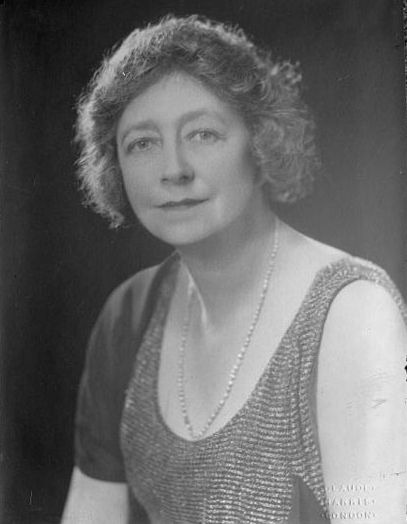
PHILIP SEYMOUR HOFFMAN (1967-2014)
NOMINATIONS:
Supporting- 2008 for Charlie Wilson's War, 2009 for Doubt, 2013 for The Master
WINS:
Lead- 2006 for Capote
--
MAY WHITTY (1865-1948)
NOMINATIONS:
Supporting- 1937 for Night Must Fall, 1942 for Mrs. Miniver
#oscars#academy awards#actors#film#oscar winners#oscar nominees#philip seymour hoffman#may whitty#capote 2006#charlie wilson's war#doubt 2009#the master 2013#night must fall 1937#mrs. miniver#mrs miniver#nominees group a#nominees group a polls
16 notes
·
View notes
Text


Mrs. Miniver (1942)
#in shock at the lack of gifs of this movie i thought people were obsessed with greer#stg im not trying to take this out of context it broke me both in and out of context!!!! :)#mrs. miniver#mrs miniver#greer garson#teresa wright#m
9 notes
·
View notes
Text
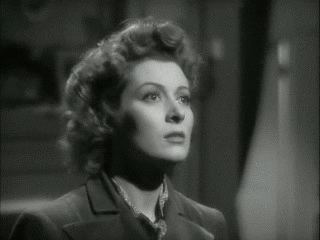
6 notes
·
View notes
Text
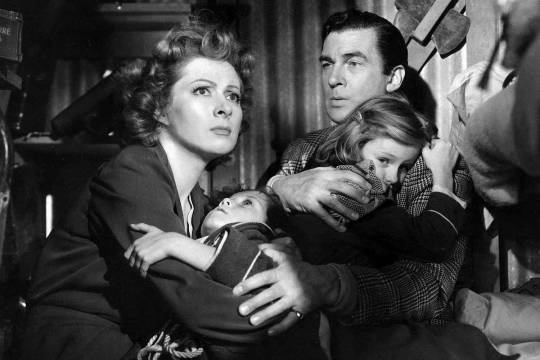
Monday, February 12, 2024
79. MRS. MINIVER (William Wyler, 1942) - United States - Streaming - Home Library, Plex Server - 134 minutes. New film #74.
3 notes
·
View notes
Text
Time Crossed, chapter 11

Chapter 11
Repatriation (reprise) - Triumph - Mrs. Miniver - An appointment with Mr. Dunworthy
[Does this soap box make me look tall?]
Continued thanks to pandamug for betaing. Any mistakes remain my own.
#myfic#time crossed#oxford time travel series#connie willis#polly churchill#I hope you enjoy#fanfiction#egyptomania#mrs miniver#everybody gets a kitten
4 notes
·
View notes
Text

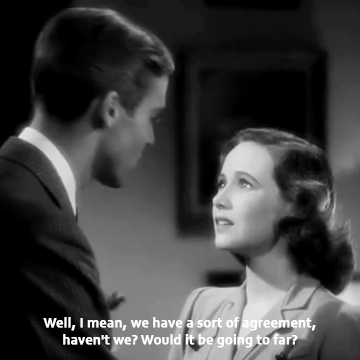


they've come so far
Mrs. Miniver (1942)
#mrs miniver#Teresa Wright#Richard Ney#mrs miniver (1942)#Vin Miniver#Carol Beldon#1942#1940s#classic movies#40s film#film edit#film#movie edit#movie#film recommendation
17 notes
·
View notes
Text

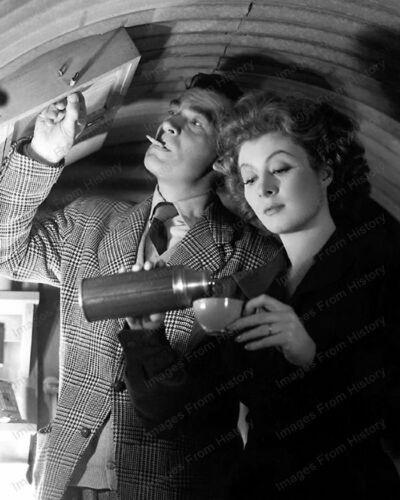
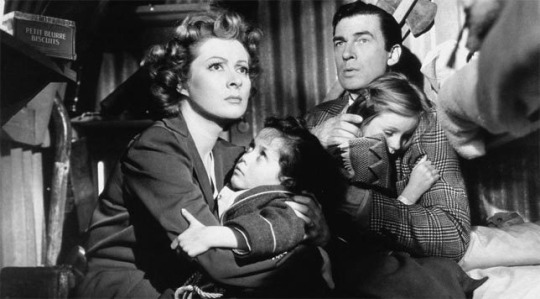
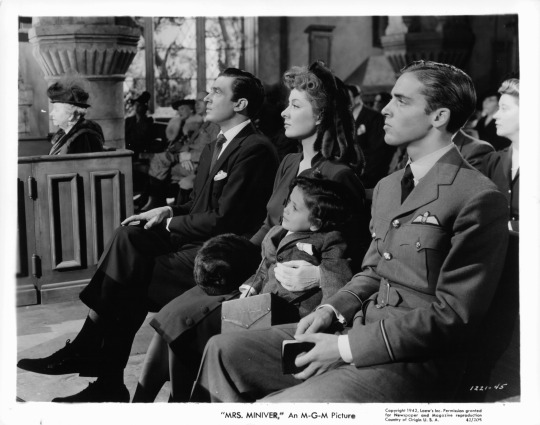
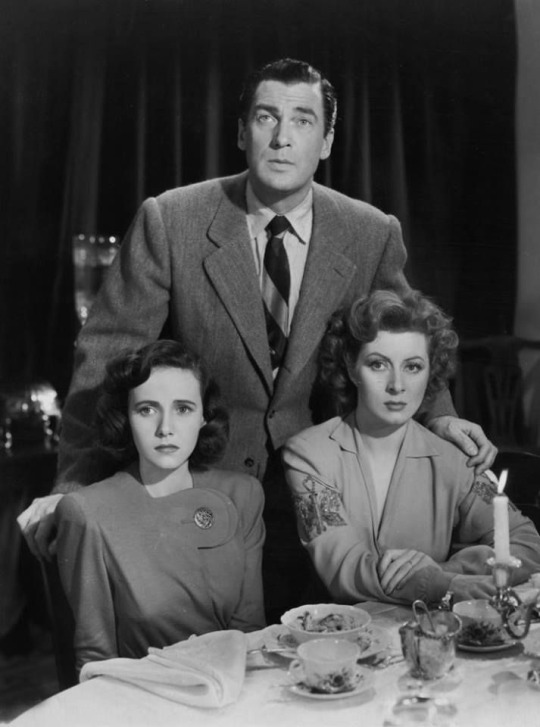
"Mrs. Miniver" is more than a picture... It's dramatic. It's tender. It's human. It's real."
Celebrating the 80th anniversary of the release of William Wyler’s MRS. MINIVER, #OnThisDay in 1942.
20 notes
·
View notes
Text

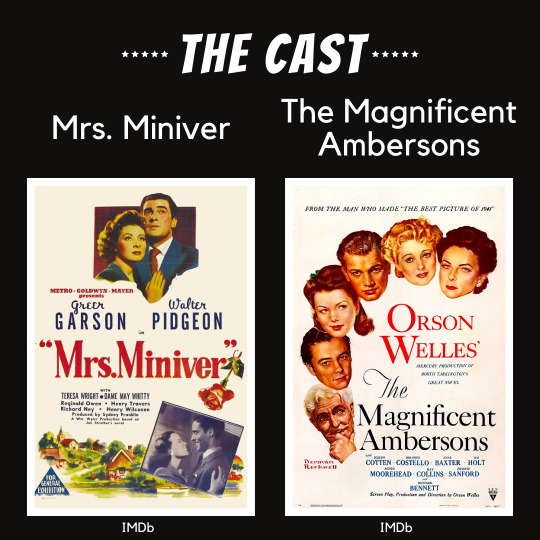
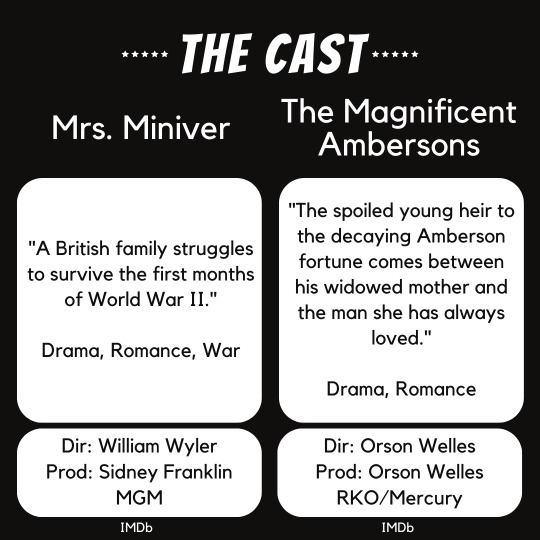


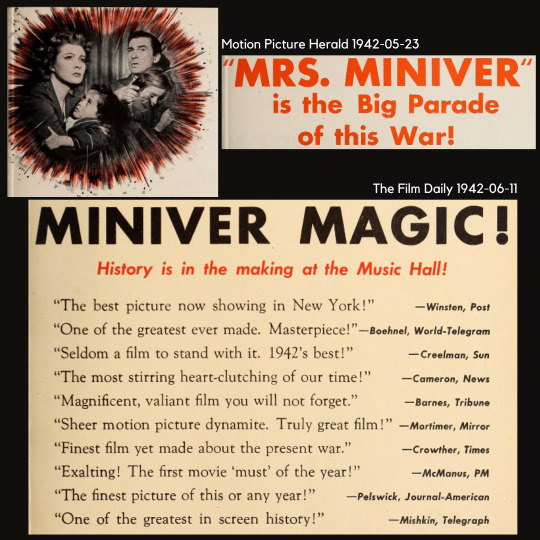
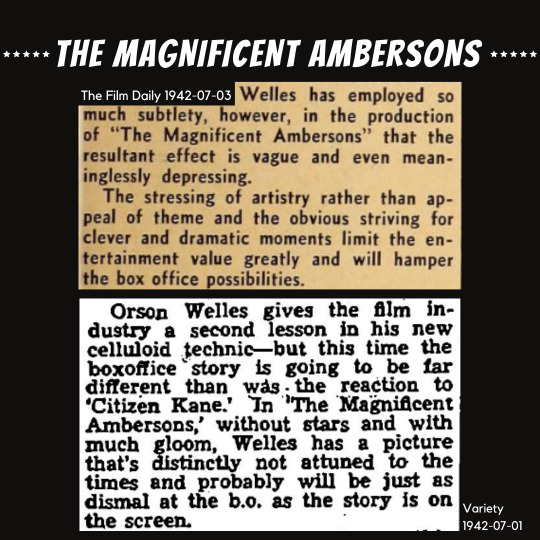

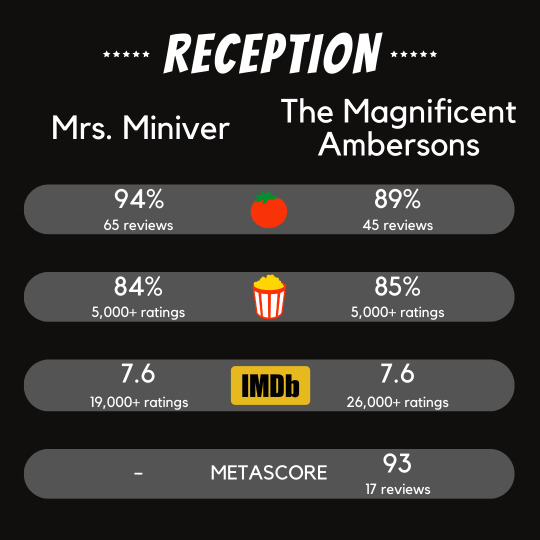


It's wartime in the US and the films are overwhelmingly bland. Mrs. Miniver tells the story of a plain, upper-middle class mother in the midst of war. The Magnificent Ambersons told slightly the opposite: the story of a rich momma's boy in the midst of....really nothing important.
Mrs. Miniver was the top grossing film of 1942, and almost everyone in the papers had something positive to say about it. Perhaps that's because it was basically just war propaganda, but oh well.
It's probably difficult to appreciate Mrs. Miniver at the same level in modern times, but that doesn't mean it's unwatchable. It's heartwarming and boasts a great cast, so I didn't mind it.
The Magnificent Ambersons was the next film from Orson Welles after Citizen Kane, so one may assume equal success from this film. However, it was difficult to find significant press or ads surrounding the film, and the reviews were quite poor.
The original cut of the film was almost an hour longer, but the film still seems to drag throughout its 88 minute runtime. This one was of those films that was difficult to finish for me. The main character is just a whiny rich boy who is weirdly obsessed with the love life of his mother? Even the excellent directing and cinematography from Welles isn't present in this one. It's simply lacking all around.
At the 15th Academy Awards, Mrs. Miniver became the first film to be nominated for 5 acting nominations, including at least one in the 4 categories. Greer Garson's acceptance speech lasted nearly 6 minutes, a feat that would not go over well in current ceremonies.
Unofficial review: Definitely not an upset. Welles fan? Sure, go watch The Magnificent Ambersons. But don't say I didn't warn you.
#oscars#academy awards#15th academy awards#mrs miniver#mrs. miniver#mrs miniver 1942#the magnificent ambersons#the magnificent ambersons 1942#1940s#film#1940s film#oscar upsets
1 note
·
View note
Text
Top two vote-getters will move on to the next round. See pinned post for all groups!
#best best adapted screenplay tournament#best adapted screenplay#oscars#academy awards#amadeus#peter shaffer#mrs miniver#george froeschel#james hilton#claudine west#arthur wimperis#jan struther#gone with the wind#sidney howard#margaret mitchell#howards end#ruth prawer jhabvala#e.m. forster#the social network#aaron sorkin#ben mezrich#traffic#stephen gaghan#simon moore#polls#bracket tournament#poll#bracket
0 notes
Text
Oscar Nominee of All Time Tournament: Round 1, Group A
(info about nominees under the poll)

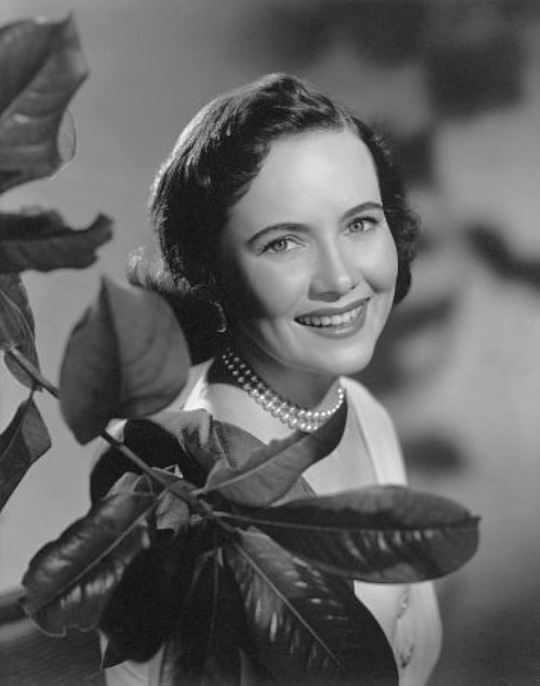
ESTELLE PARSONS (1927-)
NOMINATIONS:
Supporting- 1968 for Rachel, Rachel
WINS:
Supporting- 1967 for Bonnie and Clyde
--
TERESA WRIGHT (1918-2005)
NOMINATIONS:
Supporting- 1941 for The Little Foxes
Lead- 1943 for The Pride of the Yankees
WINS:
Supporting- 1942 for Mrs. Miniver
#oscars#academy awards#oscar nominees#oscar winners#teresa wright#estelle parsons#rachel rachel 1968#bonnie and clyde#bonnie and clyde 1967#the little foxes#the little foxes 1941#the pride of the yankees#mrs miniver#mrs miniver 1942#nominees group a#nominees group a polls#actors#film
7 notes
·
View notes
Text
Part of the reason that I loved The Blackout Book Club is that it was like a reverse version of Imaginary Book Recs. Instead of real people discussing imaginary books it was imaginary people discussing real books. I think the similarity was increased by the fact that the book club meetings were only portrayed via minutes taken by the characters, so it's not just about the books themselves, but about what the different characters think of the book and what the person writing the minutes thinks about the other characters and the book. Layers of meta, weaving these books into the story of these characters' lives, rather than just making this another Book About How Great Books Are. And then the fun part is that after you finish the book, you can read these books to join in the book club with these imaginary friends.
#the blackout book club#amy lynn green#imaginary books recs#real life book recs#it was a stroke of genius to have her characters start with mrs. miniver#because if you follow the books in book club order that means you go from this historical wwii home front fiction#to contemporary wwii home front fiction#it flows very well#(mrs. miniver is charming so far)#(very easy read)#(a bit like a more poetic version of a.a. milne's humor columns)
21 notes
·
View notes
Text
crowd vs. critic single take // MRS. MINIVER (1942)

Photo credits: IMDb.com
Mrs. Miniver takes place in two eras: the time before September 3, 1939 and the time after.
Before Great Britain declares war on Germany, Mr. Clem (Walter Pidgeon) and Mrs. Kay (Greer Garson) Miniver’s biggest concerns are about money. Specifically, they spend their energy convincing each other—and their upper crust neighbor Lady Beldon (Dame Mae Whitty)—their spending on little luxuries like hats and cars is worthy of their family’s middle class income. Though Lady Beldon does not care for blurring social lines, her granddaughter Carol (Teresa Wright) is more open-minded, catching the eye of the collegiate Vin Miniver (Richard Ney). But everything changes on September 3rd. Vin enlists, Clem volunteers, and Kay makes a bomb shelter comfortable for their young children. For the Minivers, World War II is not just on the battlefield on the continent—it’s here at home.

CROWD // And the Academy’s love affair with World War II begins! Mrs. Miniver is the first of 11 Best Picture winners set during or immediately after the war, which means more than 10% of the Academy’s top prizes have been dedicated to defeating the Nazis. Even among those titles, though, Mrs. Miniver is singular. Casablanca, From Here to Eternity, The Bridge on River Kwai, Patton, and The English Patient follow soldiers and resistance fighters; The Sound of Music, Schindler’s List, and The King’s Speech recount true stories of extraordinary individuals living through the conflict; and The Best Years of Our Lives and An American in Paris depict the struggle to rebuild the world afterward.
Unlike those epics, we only see the Minivers on the homefront. Vin joins the Royal Air Force, but like his mother, we only wonder what he sees from the cockpit. Clem supports the efforts at Dunkirk, but Christopher Nolan still felt the need to depict that rescue of troops in his own film because we never see Clem beyond the horizon of Britain’s shores. Yes, the episodic Miniver lacks the jet-fueled forward propulsion of Nolan’s film, but that wouldn’t be honest with the civilian experience. The family’s skirmishes with danger are few and unpredictable, and in some ways, that makes them more upsetting. When tragedy does strike, it hits a family we’ve laughed and rejoiced with around the dinner table, making this melodrama still moving today.
POPCORN POTENTIAL: 8/10

CRITIC // If there’s any criticism to be leveled at Mrs. Miniver, it’s that its affection for the titular family is blind. Character flaws? Complex motives? Who needs them when you’re trying to create a rousing morale-booster justifying a global conflict still in the court of public opinion? The Minivers and their neighbors are symbolic avatars more than well-rounded individuals, which is just one reason Winston Churchill called this film “propaganda worth a hundred battleships.” In fact, the last scene was literally re-distributed as print and radio propaganda!
Still, given that this particular fight against fascism is one with fewer moral gray areas, romanticizing these people fighting out of uniform has aged better than, say, a film about the Russian Revolution. In the history of cinema, a majority of war films focus on combat and political leaders, while Mrs. Miniver reminds us the people at home—including but not limited to the oft-disenfranchised women, children, elderly, and working classes—can be just as cudgeled by war without enlisting. They may avoid the trenches, but their food, shelter, life, and limb are just as uncertain, not to mention the future of their loved ones serving in the military. With that in mind, who’s to complain about making these hometown heroes so likable?
It’s also difficult to fault Mrs. Miniver for idolizing its subjects when its cast and its craft are working in tandem with its vision. William Wyler, who still holds the record for the most Best Director nominations at 12, assembled a cast as winning as the parts they were playing, none more than the Garson’s Mrs. Miniver herself. Her hopeful but clear-eyed face of determination creates a center of gravity for the rest of the actors, and the compassion driving her never becomes too syrupy.
ARTISTIC TASTE: 9/10
#Mrs. Miniver#1942#Best Picture#Best Picture Project#Academy Awards#Oscars#Greer Garson#Crowd#Critic#Single Take#Dame Mae Whitty#Teresa Wright#Richard Ney#Walter Pidgeon#Mrs. Miniver review#Casablanca#From Here to Eternity#The Bridge on River Kwai#Patton#The English Patient#The Sound of Music#Schindler’s List#The King’s Speech#The Best Years of Our Lives#An American in Paris#Dunkirk#Christopher Nolan#8/10#9/10
6 notes
·
View notes
Text

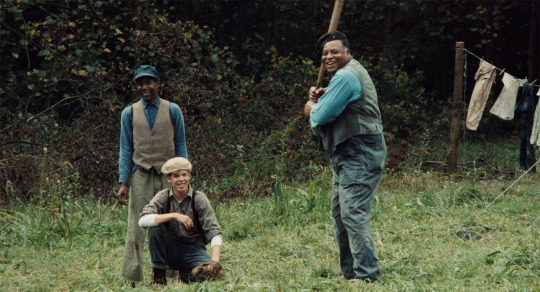
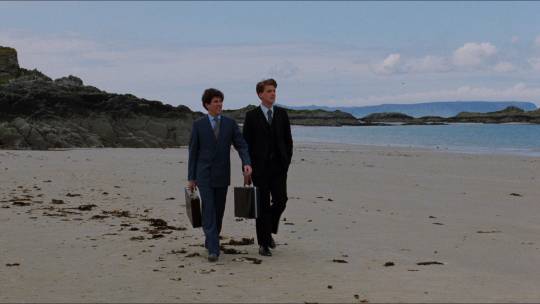
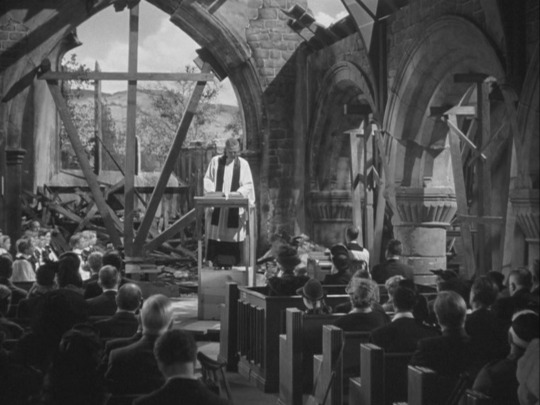

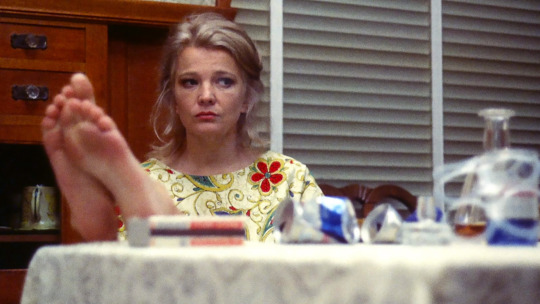
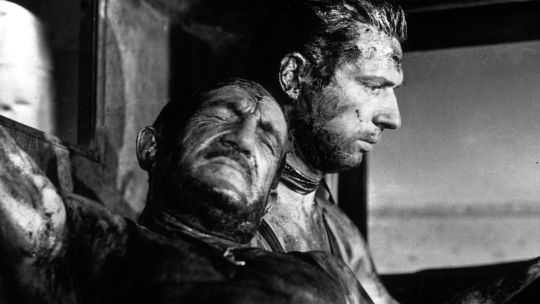





TWELVE FAVORITE FIRST TIME WATCHES FOR FEBRUARY 2024
YOUR NAME. (M. Shinkai, 2016)
MATEWAN (J. Sayles, 1987)
LOCAL HERO (B. Forsyth, 1983)
MRS. MINIVER (W. Wyler, 1942)
PREDATOR (J. McTiernan, 1987)
A WOMAN UNDER THE INFLUENCE (J. Cassavetes, 1974)
THE WAGES OF FEAR (H. Clouzot, 1953)
BEAU TRAVAIL (C. Denis, 1999)
SEVEN SAMURAI (A. Kurosawa, 1954)
THE MASK (C. O'Malley, 2023) (short)
DUNE: PART TWO (D. Villeneuve, 2024)
THE SPIRIT OF THE BEEHIVE (V. Erice, 1973)
Bold indicates a film seen in the theater.
#your name#matewan#local hero#mrs miniver#predator franchise#a woman under the influence#beau travail#seven samurai#dune part two#spirit of the beehive
3 notes
·
View notes
Text
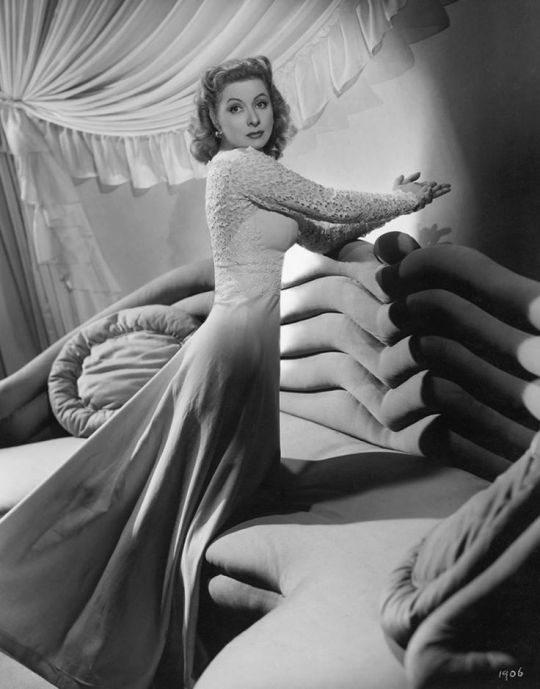
Greer Garson
#Greer Garson#actress#redhead#British-American#singer#Hollywood#classic#film#SUTS 2023#TCM#Eileen Evelyn Greer Garson#Mrs. Miniver#stage#theatre#Louis B. Mayer#MGM#Goodbye Mr. Chips#When Ladies Meet#Blossoms in the Dust#Random Harvest#Academy Award for Best Actress#Madame Curie#Mrs. Parkington#The Valley of Decision#Julia Misbehaves#That Forsyte Woman#Scandal at Scourie#television#movies#marriage
3 notes
·
View notes
